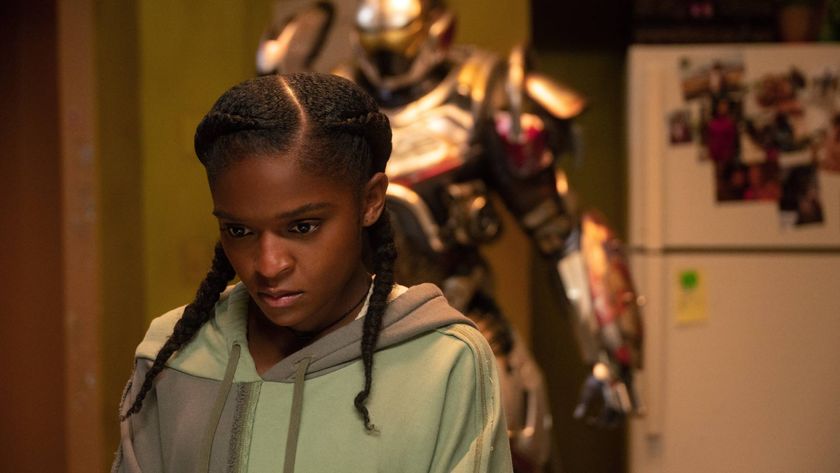Kirby and the Forgotten Land has its own language – so I set out to learn it
Deciphering the mysterious language in Kirby and the Forgotten Land is my new obsession
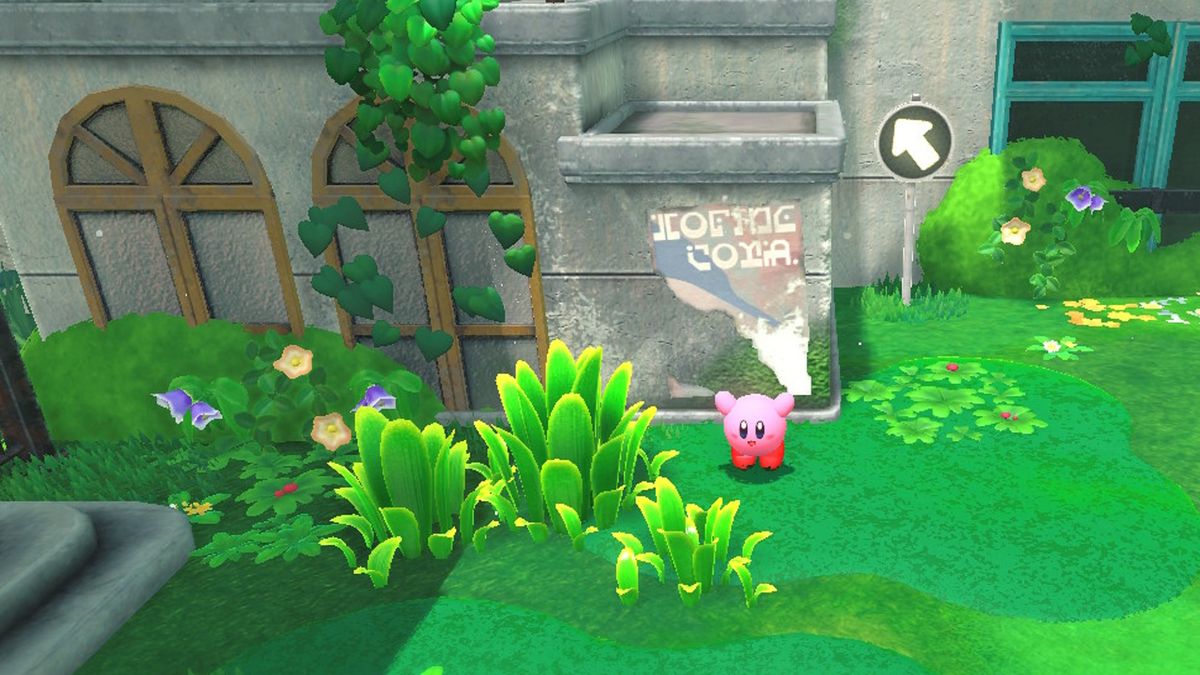
When the mysterious world of Kirby and the Forgotten Land first opened up to me, a poster stopped me in my tracks. A torn, weathered piece of paper decorated the side of a building overgrown with greenery. While it was missing its bottom half, the top of the poster immediately drew my eye. Some strange text sat on the page, with symbols that looked entirely alien to me… yet at the same time, somehow familiar.
Having only just arrived in the opening stage, I'd barely seen much of the setting at all at this point, but this small detail sent my mind reeling. What did the text mean? How long has it been on this building? And, more importantly, who put it here? I had to move on, but I couldn't stop fixating on the strange language and the mystery surrounding the setting. Happily, as I would learn shortly after, there was a way for me to decipher and understand these symbols, and doing so became something of an obsession during my time with Kirby and the Forgotten Land.
Welcome to a new world
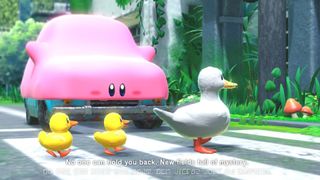
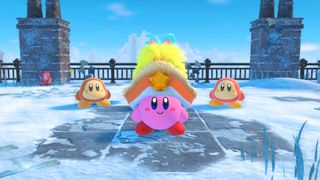
Kirby and the Forgotten Land tips to help you save all the Waddle Dees
I was welcomed to this new world with a song in the opening cinematic. As adorable as it was to see Kirby drive through the streets of the city using his new found Mouthful Mode skill, the lyrics are what held my attention. The very same otherworldly text on the poster accompanied the English words, and everything clicked into place. The symbols weren't too far off in resemblance to English letters. In fact, they look a little like slightly skewed versions that have been flipped upside down. As the cinematic unfolded before me and I soaked in every word, it dawned on me that this could be the Kirby equivalent of the Rosetta stone. With screenshots and a recording of the cinematic, I rushed back to the poster to find out what it said for myself.
By sketching out the symbols from the poster, I compared each one to the lyrics shown during the cinematic sequence to find a match. Once I found a pair, I could then translate them into the corresponding English letter. I felt like Sherlock Holmes or some other great detective cracking a secret code in a case of my own making. Now, I know I'm not the first to make such a discovery by any means, but I wish I could have somehow bottled the elation that washed over me during that eureka moment. Each time I figured out a letter, my excitement grew. It was as though this poster held the key to unlocking more about the world.
The second word on the poster was the first one to come together: Corp. Who would have thought the discovery of the word Corp could be so thrilling? When I pieced the first word, I had a name for a corporation – Holine. The poster transformed from a decorative mystery to a feature that actually told me something – however small – about this place. My efforts also led me to finding answers to a few of those questions that sprang to mind the first time I saw the poster. In the world of Kirby and the Forgotten Land, a corporation by the name of Holine Corp must have put up what could have been advertisements in this now abandoned city. But what did they do or make? And how could I possibly find that out?
Learning from the little things
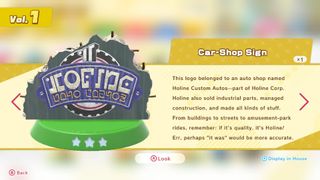
"It's amazing to think that this small detail, which caught my eye at the outset of the game, snowballed into a larger story about the construction of the world."
One of the great joys of Kirby and the Forgotten Land is that it doesn't directly tell you about the world. Instead, you can make discoveries of your own by soaking in the details of the stages, or taking the time to read the descriptions of the collectible Kirby figures. When I randomly got my hands on a figure of the car shop sign, I audibly gasped. There in the description, it told me about the Holine Corp - right down to the slogan of the company: "If it's quality, it's Holine!"
The figure told me that the company sold industrial parts, managed construction, and "made all kinds of stuff." So, the poster featured the logo for a company that was responsible for building streets and amusement park rides, which means I was seeing traces of their handiwork all over. It's amazing to think that this small detail, which caught my eye at the outset of the game, snowballed into a larger story about the construction of the world – it's a testament to the level of care and detail that developer HAL Laboratory has sunk into Kirby and the Forgotten Land, particularly for those willing to scratch beneath the surface of the world.
Sign up to the 12DOVE Newsletter
Weekly digests, tales from the communities you love, and more
It's fair to say that the world of Kirby and the Forgotten Land utterly fascinates me. Its many stages take you through abandoned roads and cityscapes that have now been reclaimed by nature. All of the buildings have weathered over time, and other locations no longer serve the function they once had. A metro station you go to, for example, has now frozen over, and an empty shopping mall no longer has any customers to serve - if you don't count the Awoofys. Everything that remains speaks to the now-lost civilization, and I can't help but wonder what each location once looked like.
Nothing has immersed me in this setting quite like the "new written language" HAL Laboratory created. I love the way that it looks alien at first glance (since you're playing as Kirby), but if you look closer, it becomes clear that this place has more in common with the world I know than I first thought. Every time I see a sign or come across a feature with that text, I just know I won't be able to resist referring back to that opening sequence to settle in for some good deciphering. After all, who knows what other mysteries are out there, just waiting to be found, in Kirby and the Forgotten Land.
Stay on top of the latest releases on the horizon with our round-up of the most exciting upcoming Switch games.

I started out writing for the games section of a student-run website as an undergrad, and continued to write about games in my free time during retail and temp jobs for a number of years. Eventually, I earned an MA in magazine journalism at Cardiff University, and soon after got my first official role in the industry as a content editor for Stuff magazine. After writing about all things tech and games-related, I then did a brief stint as a freelancer before I landed my role as a staff writer here at 12DOVE. Now I get to write features, previews, and reviews, and when I'm not doing that, you can usually find me lost in any one of the Dragon Age or Mass Effect games, tucking into another delightful indie, or drinking far too much tea for my own good.
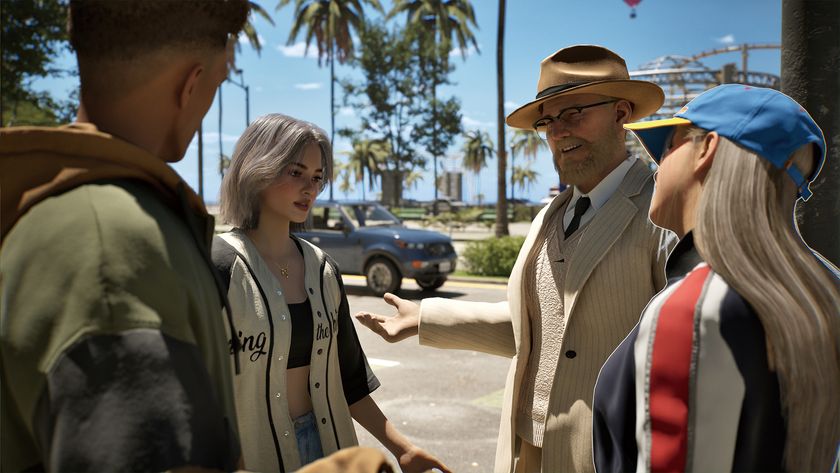
Inzoi dev says "highly inappropriate" bug that let you kill kids with your car has been patched out: "We are strengthening our internal review processes"
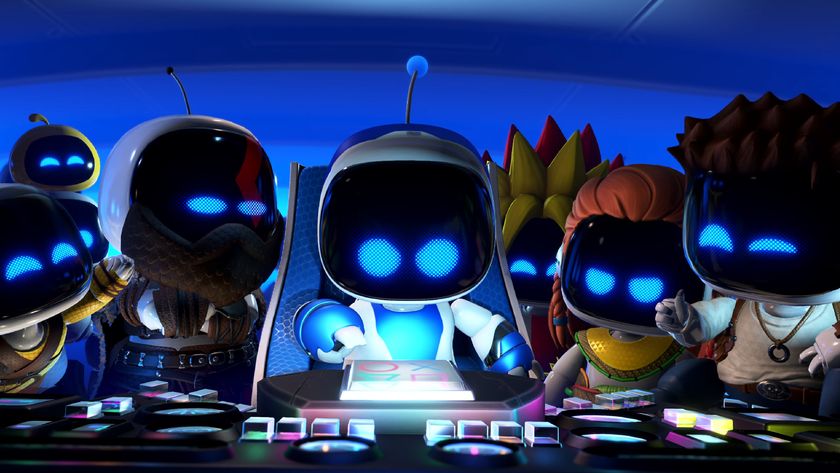
"30 years of history reside in our tape backups": PlayStation's building a game preservation mineshaft vault with 200 million files going back to a 1994 build of PS1 JRPG Arc the Lad

The other big Soulslike out this week has some Bloodborne and Dark Souls 3 in its combat, dev says, but "we would rather call AI Limit an action RPG"








